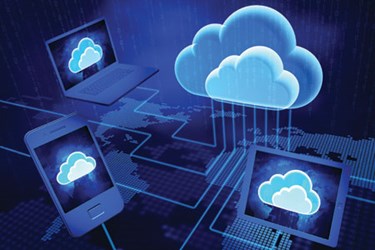Will There Ever Be A Tax On The Cloud?
By Trisha Leon, contributing writer

As more companies move toward cloud-based technologies, cloud sales are expected to rise dramatically, generating billions of dollars in revenue, which poses a question for state and local lawmakers — can this revenue be taxed, and, if so, how?
The issue of defining a “service” and whether it can be taxed is a complicated one, and with the migration of commerce — the sale of goods and services — to the cloud, governments are scrambling to keep up as more complicated issues arise. For instance, if software is provided virtually and hosted by a worldwide network, has real property changed hands and can states tax it?
Harley Duncan, managing director for state and local tax at KPMG and the former executive director of the Federation of Tax Administrators, explains in Government Technology: “Tax laws are lagging technological change and that is putting stress on state tax systems. Three changes in particular challenge the basic norms of the tax systems: the move to cloud computing, greater utilization of digital goods, and remote retailing.”
At their conception, sales tax laws were designed around the purchase of personal property. Transactions were tangible and simple to trace. As the service industry grew more robust, the tax waters became muddied — you consider where was the service performed and where its primary cost is, not an easy task. Cloud computing, however, changes the characteristics of what you buy, further complicating the issue of what can be taxed and how. Duncan states, “Instead of physically acquiring, taking delivery, and installing an office package on your computer, you now interact with the same software in a hosted environment. It is not on your machine. You are not in control of it. You don't download it. It is hosted by someone else in a cloud environment. You get the same functionality as before, but you interact over the Internet. As a business, you pay for a service to provide the capacity you need.”
“Think about cloud computing as compared to the acquisition of software or servers. The characterization question is, do you have software or a service? You didn't download anything, yet you have all the functionality. You didn't acquire a server, so is it tangible personal property which is taxable? If it's not — if it's a service — then it depends on individual state law where only enumerated services are taxable. A service a state could enumerate is to tax software as a service or data processing.”
Traditional sales models worked well through the 1970s, but now they are struggling to keep up with changing business models. It will be a challenge for states to accommodate these changing models — but it is a challenge they are working to meet.
